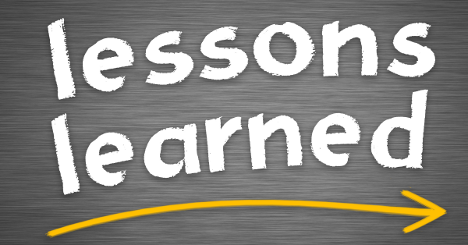10 Inspiring Lessons We Can Learn From International Educators

We Can Learn From International Educators
We Can Learn From International Educators
We Can Learn From International Educators
We Can Learn From International Educators
We Can Learn From International Educators
We Can Learn From International Educators
Introduction
In today's interconnected world, education is no longer confined to the boundaries of a single nation. International educators bring diverse perspectives, innovative teaching methods, and cultural insights that can revolutionize the way we approach education. This article explores ten inspiring lessons we can learn from international educators, aiming to provide actionable insights for educators seeking to enhance their teaching methods and foster a more engaging and inclusive learning environment.
1. Embracing Cultural Diversity
The Power of a Multicultural Classroom
International educators understand the value of cultural diversity in the classroom. By incorporating different cultural perspectives, they create a more inclusive and enriching learning environment. This approach not only broadens students' horizons but also fosters empathy and mutual respect.
Strategies to Implement
- Incorporate Global Content: Use materials and case studies from various cultures.
- Celebrate Cultural Events: Recognize and celebrate international festivals and holidays.
- Invite Guest Speakers: Bring in speakers from different cultural backgrounds to share their experiences.
2. Innovative Teaching Methods
Flipped Classroom Model
Many international educators utilize the flipped classroom model, where students engage with instructional content at home and apply their knowledge in the classroom through interactive activities. This method enhances student engagement and allows for deeper learning.
How to Get Started
- Pre-record Lectures: Create video lectures for students to watch at home.
- Interactive Activities: Plan hands-on activities and discussions for classroom time.
- Continuous Feedback: Provide regular feedback to guide student learning.
3. Focus on Critical Thinking
Developing Analytical Skills
International educators often emphasize critical thinking and problem-solving skills. They encourage students to question assumptions, analyze information critically, and develop well-reasoned arguments.
Techniques to Foster Critical Thinking
- Debates and Discussions: Organize debates on current issues to stimulate critical analysis.
- Case Studies: Use real-world scenarios for students to analyze and solve.
- Socratic Method: Engage students in dialogue by asking thought-provoking questions.

4. Integrating Technology in Education
Leveraging Digital Tools
The integration of technology is a hallmark of international education. Educators use various digital tools to enhance learning, from interactive software to online collaboration platforms.
Recommended Tools
- Learning Management Systems (LMS): Platforms like Moodle and Canvas.
- Educational Apps: Tools like Kahoot! and Quizlet for interactive learning.
- Virtual Classrooms: Use platforms like Zoom and Microsoft Teams for remote learning.
5. Project-Based Learning
Real-World Applications
Project-based learning (PBL) is a method where students learn by actively engaging in real-world and meaningful projects. This approach helps students develop practical skills and a deeper understanding of the subject matter.
Steps to Implement PBL
- Define the Project: Choose projects that are relevant and challenging.
- Collaborative Work: Encourage teamwork and collaboration among students.
- Assessment: Evaluate both the process and the final product of the project.
6. Emphasis on Lifelong Learning
Continuous Professional Development
International educators prioritize lifelong learning, not only for students but also for themselves. They engage in continuous professional development to stay updated with the latest educational trends and methodologies.
Ways to Promote Lifelong Learning
- Professional Workshops: Attend and organize workshops and seminars.
- Online Courses: Enroll in online courses to learn new skills.
- Learning Communities: Join educator networks and learning communities for knowledge exchange.
7. Holistic Education Approach
Balancing Academic and Personal Growth
Holistic education focuses on the overall development of the student, including emotional, social, and physical well-being. International educators strive to create a balanced approach that nurtures all aspects of a student's growth.
Implementing Holistic Education
- Wellness Programs: Incorporate physical and mental wellness programs.
- Extracurricular Activities: Encourage participation in arts, sports, and clubs.
- Mentorship Programs: Establish mentorship programs to support personal development.
8. Embracing Flexibility and Adaptability
Adapting to Change
International educators are adept at adapting to various educational contexts and challenges. They embrace flexibility and adaptability, which are crucial skills in the ever-changing landscape of education.
How to Cultivate Flexibility
- Flexible Curriculum: Design a curriculum that allows for adjustments and changes.
- Responsive Teaching: Be responsive to students' needs and feedback.
- Innovative Solutions: Experiment with new teaching methods and technologies.
9. Building Strong Community Connections
Engaging with the Community
International educators often build strong connections with the local community, integrating community resources and experiences into their teaching. This connection enriches the educational experience and provides students with a broader perspective.
Ways to Engage with the Community
- Community Projects: Involve students in community service projects.
- Local Partnerships: Partner with local organizations for educational programs.
- Field Trips: Organize field trips to local businesses, museums, and cultural sites.
10. Fostering a Growth Mindset
Encouraging Resilience and Persistence
A growth mindset, which emphasizes the ability to grow and improve through effort and learning from mistakes, is a key focus for many international educators. They encourage students to embrace challenges and view failures as opportunities for growth.
Strategies to Foster a Growth Mindset
- Praise Effort: Focus on praising students' efforts rather than their innate abilities.
- Growth-Oriented Feedback: Provide feedback that encourages improvement and resilience.
- Reflective Practices: Encourage students to reflect on their learning processes and outcomes.

Conclusion
Learning from international educators provides invaluable insights that can transform our approach to teaching and learning. By embracing cultural diversity, innovative methods, critical thinking, and other key lessons, we can create a more engaging, inclusive, and effective educational environment. These global perspectives not only enrich our teaching practices but also prepare students to thrive in an interconnected world.
FAQs
What are the benefits of learning from international educators?
International educators bring diverse perspectives and innovative teaching methods, fostering a more inclusive and enriching learning environment. They help develop critical thinking, cultural awareness, and adaptability among students.
How can I incorporate cultural diversity in my classroom?
You can incorporate cultural diversity by using global content, celebrating international events, and inviting guest speakers from various cultural backgrounds.
What is the flipped classroom model?
The flipped classroom model involves students engaging with instructional content at home and using classroom time for interactive activities and discussions, enhancing engagement and learning.
How can I promote lifelong learning?
Promote lifelong learning by attending professional workshops, enrolling in online courses, and joining educator networks and learning communities for continuous professional development.
What is project-based learning (PBL)?
Project-based learning (PBL) is an instructional method where students learn by actively engaging in real-world and meaningful projects, developing practical skills and deeper understanding.
[bdp_post_carousel show_tags="false" show_comments="false" show_category="false" dots="false" limit="10" orderby="rand"]
You can signup for free
